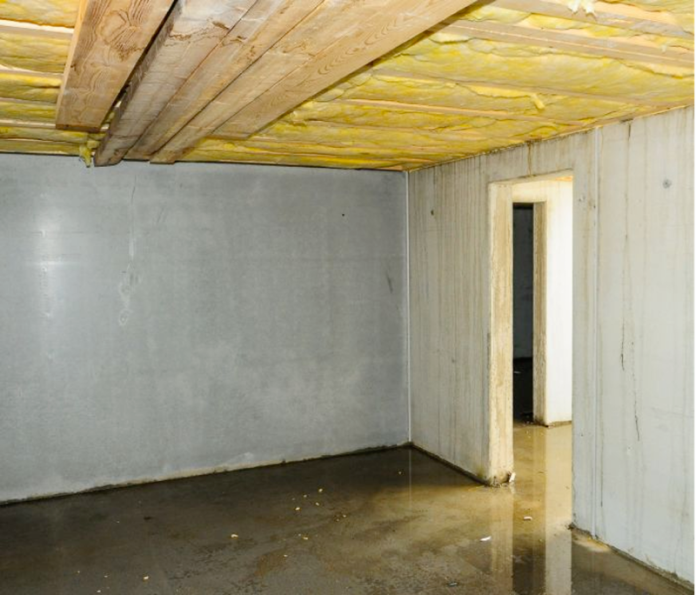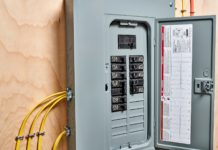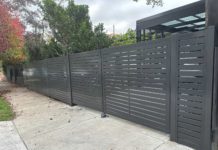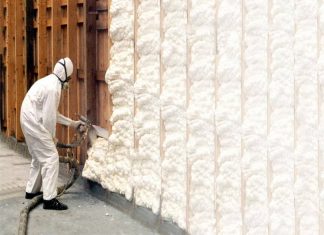Homeowners should never overlook or avoid needed house foundation repair. The longer you put off needed fixes, the worse that damage gets. In turn, you might end up paying thousands of dollars more for repairs than if you addressed them immediately. Additionally, a weak foundation can risk secondary damage around your house, including wall cracks and water leaks. It’s important to notice the signs that your foundation requires repair. Visit our website at thewoodlandsfoundationrepairpros.com.
That being said, one reason many people put off house foundation repair is that they don’t realize their property needs attention! To ensure you’re keeping your house in good condition, check out 8 signs that your home’s foundation needs repairs. You can then discuss these with a repair contractor near you as needed.
1. Deep Cracks? It’s Time for House Foundation Repair
Tiny hairline cracks along concrete foundations aren’t always dangerous and don’t necessarily need immediate repair. A homeowner should patch those anyway, to keep out moisture and prevent them from getting worse over time.
However, deeper and wider cracks need immediate fixing. If left untouched, those cracks can spread and weaken a foundation. They also allow concrete to absorb damaging moisture, so that it gets even weaker over time.
2. Chipped Concrete Needs Immediate Fixing
Along with deep and wide cracks, chipped concrete needs immediate fixing. Once concrete has chipped, it’s become weak and will usually continue to crack and chip. Also, a weak foundation can’t hold up the weight of a structure as it should. In turn, your house might shift and then settle, risking interior and exterior cracks and other serious damage.
3. Know What Concrete Spalling Looks Like
Concrete spalling refers to small pieces of concrete breaking away or flaking off. This process is often called concrete cancer, as it typically spreads across the surface of concrete. Spalling usually occurs when rebar used to reinforce concrete begins to rust.
If you’re unfamiliar with concrete spalling, it’s vital that you note what it looks like and how it appears. Once concrete begins to spall, it needs immediate patching or replacement. This repair work ensures the concrete stays strong and doesn’t begin to chip or flake.
4. Basements and Interior Spaces Shouldn’t Be Damp and Musty!
Some homeowners mistakenly think that basements or first floor utility rooms are naturally damp and musty. However, this simply isn’t the case! Damp basements, laundry rooms, and other such spaces typically indicate foundation leaks. Those leaks let moisture into the space which then means standing water or a musty environment.
If you notice this issue around your home, don’t simply clean the water and install a dehumidifier. Instead, schedule a foundation inspection so you can then have a contractor perform repairs as needed.
5. Flooring Issues That Indicate Foundation Damage
As with a damp and musty basement, don’t assume that floorboards just squeak or creak when you walk across them! As a home’s foundation weakens, this often pulls on its subflooring. In turn, those boards creak or groan when you walk over them.
Additionally, you might notice floor tiles slipping out of place as they pull away from the grout under them. Also, hardwood flooring might warp or pop out of position. Don’t simply repair these issues but schedule a foundation inspection as soon as possible.
6. Wall and Ceiling Cracks Often Indicate Foundation Damage
Weak foundations allow a home to shift over that damaged area. In turn, the house might settle or sink slightly. As it does, it pulls on solid surfaces inside and out, including drywall or plaster. In turn, you might notice wall and ceiling cracks forming around the property.
Some homeowners mistakenly patch these cracks without scheduling a foundation inspection. In turn, those cracks might come back while the foundation continues to weaken and settle. If you notice wall or ceiling cracks, don’t simply cover them over but schedule a foundation inspection as well.
7. Consider Other Wall Issues Around Your Home!
Cracks are not the only indicators of foundation damage. As your home’s foundation weakens and settles, you might also notice popped drywall nails or drywall panels pulling away from each other. Also, gaps often form in room corners as drywall pulls away from the home’s framework.
8. Unexplained Plumbing Issues Indicate Needed Foundation Repair
What does a plumbing issue have to do with emergency house foundation repair? When a settling house pulls on materials around the property, this includes plumbing pipes and their connectors! In turn, you might notice leaks and persistent clogs.
A plumber can inspect those pipes and fittings and note if other issues might be causing those problems around your property. However, if you’ve ruled out aging pipes, poor-quality installation, and the like, consider a foundation inspection for your property.
What Happens If You Don’t Fix Foundation Problems?
Now that you know some signs of foundation damage and needed repairs, you might wonder what would happen if you continued to ignore them. As said, foundation damage only gets worse the longer you put off needed fixes. Additionally, your home might show signs of secondary damage including wall and ceiling cracks, dampness, and more.
Don’t assume you can simply ignore these issues as well! Plumbing leaks often lead to persistent clogs, and of course those need fixing before you can use the home’s plumbing again. Foundation cracks letting in moisture also risks mold and mildew growth behind walls and underneath carpeting. Not only is mold damaging to drywall and framing but it’s also very unhealthy.
Lastly, note that foundation damage can affect your home’s overall value. The more severe the damage, the more it affects those values. In turn, you might lose equity you’ve built in the home or struggle to sell it if you should put it on the real estate market.
Rather than risk these issues, consider scheduling house foundation repair services when needed. A repair contractor and needed fixes ensure your home is in good condition, helping to prevent secondary damage such as wall and ceiling cracks. Patching and leak repair also help avoid mold and mildew growth inside the home. Lastly, scheduling timely repairs keeps those costs as low as possible.















